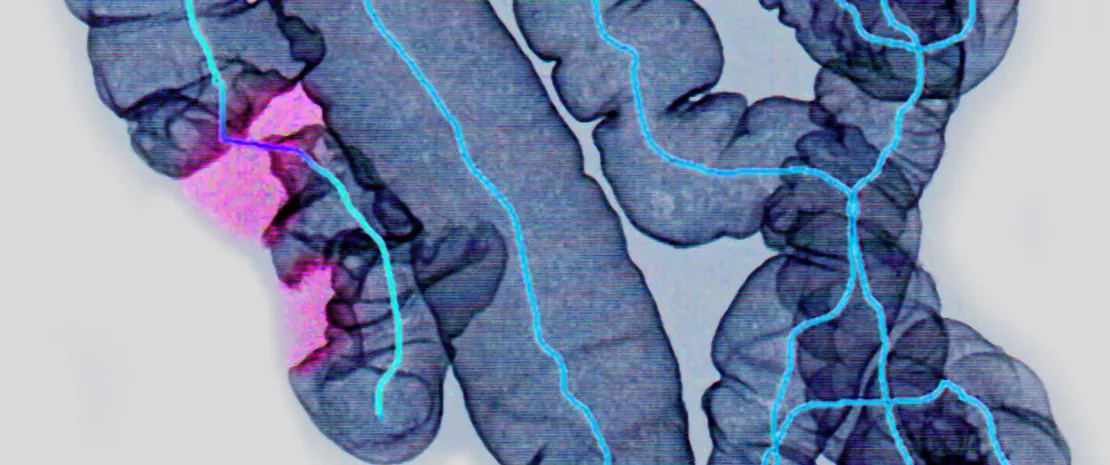Links between gut microbiota and colorectal cancer are confirmed
Japanese researchers analyzed taxonomic and functional characteristics of the gut microbiota of patients who underwent a colonoscopy. Their results indicate that the flora is involved in the onset of colorectal cancer and experiences gradual changes as the disease progresses.
Lay public section
Find here your dedicated section
Sources
This article is based on scientific information

About this article
Tumor formations in colorectal cancer (CRC) is an extended process, which explains why clinical signs only appear at an advanced stage of the disease, although it is curable when treated early. The gut microbiota is strongly suspected to be involved in this process, based on both genomic and (sidenote: Metabolomic study of metabolites derived from the body or the environment and it takes place downstream from genomics (study of all genes), among others. ) data. Better understanding its role is thus important, from an etiologic and diagnostic perspective. That is why a Japanese team carried out metagenomic (N = 616) and metabolomic (N = 406) analyses on fecal samples from patients suffering from different stages of colorectal neoplasia and who underwent a colonoscopy. Patients were divided into nine groups: from the control group to CRC stage IV, through early stages such as multiple adenomatous polyps and intramucosal carcinoma (stage 0).
Changes in microbiota occurred from the early stages
Thanks to the advanced sequencing technique used (shotgun), the results revealed changes in the microbiota and the metabolome, not only in patients with advanced lesions but also at early stages. Two significant changes in the gut microbiota composition were observed during the development of CRC: on the one hand, a progressive increase in the relative abundance of some species (such as Fusobacterium nucleatum spp., Solobacterium moorei…), whichever the stage of the disease; and on the other hand, coexistence and increase of other species (such as Actinomyces odontolyticus), only in patients at an early stage. Moreover, increases in abundance of other species can characterize CRC progression, such as Parvimonas micra from stage I and Bilophila wadsworthia at stages III/IV.
The role of fecal bile acids confirmed
Significant differences at the metabolome level were also observed between groups that could be used to distinguish between healthy patients and those with a high risk of CRC. In patients with intramucosal carcinoma, significantly higher levels of branched chain amino acids (isoleucine, leucine and valine), phenylalanine, tyrosine and glycine were found. Bile acids, including deoxycholic acid, were significantly higher in all patients at an early disease stage, thus confirming the positive correlation already reported between fecal concentration of secondary deoxycholic bile acids and increased risk of CRC. All these results, obtained in a large cohort, show that changes happen in the gut microbiota as soon as warning signs of colorectal cancer appear, generating changes in fecal concentrations of some metabolites.






